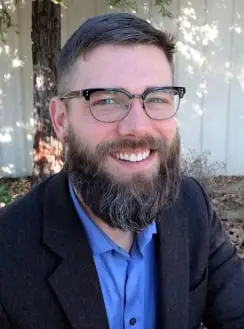 | 1 LU |
 | 1 LU |
Integrating well-being through a Justice, Equity, Diversity, and Inclusion (JEDI) stakeholder engagement process is crucial for the success of NextGen School Design. This includes engaging diverse groups and individuals and considering their unique perspectives to establish the basis of design aimed at helping the community's well-being. Doing so can create a more inclusive and equitable environment that fosters growth and success for the community. Throughout this session, we will share lessons learned, successes, and new strategies to integrate well-being throughout a school project.
Learning Objectives:

Nathaniel has over 10 years of experience in public education ranging from developing and operating a 6-acre urban farm for students ranging from k-16, afterschool programming, state and local level policy development, planning, and leadership, and most recently, the Director of Facilities for the Sacramento City USD where he oversees Facilities planning and sustainability efforts. Nathaniel grew up on a large farm and ranch in Eastern Washington and Northern Idaho before moving to California to earn his bachelor’s degrees in Sociology and Environmental Science.

Fifteen years in community organizing. Appointed to the Sacramento Police Review Commission (SCPRC), Chair of the UC Davis Staff Advisory Committee for Equity Diversity and Inclusion (SACEDI), President of the Artists of Color, active member of the Latinx Health Equity task force, active member of the Sacramento Latino Community Round Table, member of the City of Sacramento Task Force for Cultural Equity and the Arts, member of the Latinx Census subcommittee. Community partnership and collaboration with United Latinos, La Familia, Vida de Oro, Latino Center of Art & Culture. Owner of Teatro Nagual; a social justice theatre arts organization focusing on the core values of Cesar Chavez fostering service to others.

As the Director of Educational Environments at Lionakis, Aaron brings over 10 years of interior design experience to the team. His background as both a professional anthropologist and an interior designer offers a unique perspective on how humans interact with space. Aaron looks at design holistically, incorporating finishes, branding, furniture, art, and lighting into each project, with a clear understanding of the user experience. With a strong commitment to research-based design, he is passionate about delivering the most current thought leadership in NextGEN learning environments.
This track addresses the Response to real-world events and experiences that impact our daily life and our ability to function normally and be productive. The response to these occurrences is reflected in the learning environments we create and leads to the question – how can schools respond to real-world crises in a way that supports the well-being of occupants and our students' learning journey? How do we respond with approaches and strategies that may be used to balance the inability and lack of needed financial resources to address deficiencies within our learning environments’ infrastructure? Topics expand on the Art approach to the theme, but also include Science in the form of findings and outcomes through case studies and examples of successful responses to real-world conditions and events such as the COVID-19 pandemic, climate change, declining student enrollment, economics, equity, and other topics.
Primary Core Competency
Community Engagement: Leads the internal and external communities through a discovery process that articulates and communicates a community-based foundational vision, forming the basis of a plan for the design of the learning environment. The vision is achieved through a combination of rigorous research, group facilitation, strategic conversations, qualitative and quantitative surveys and workshops. Demonstrates the skill to resolve stakeholder issues while embedding a community's unique vision into the vision for its schools.